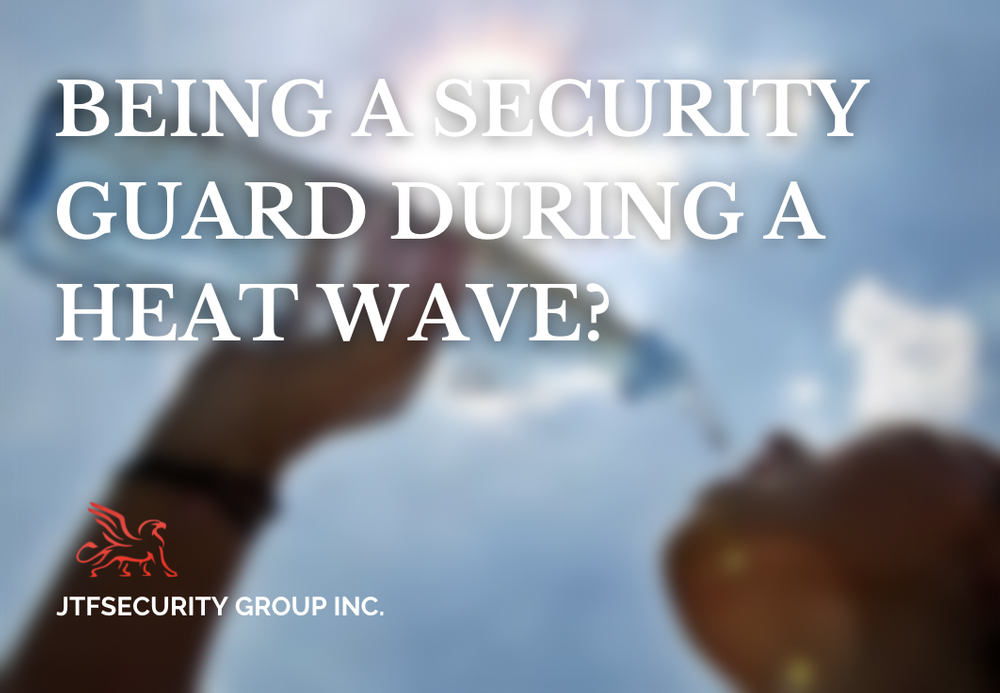Being a Security Guard During a Heat Wave? by JTFSecurity

Heat and humidity can have devastating effects on humans and can result in very serious health concerns. As a security guard, you are responsible for the safety of those you are hired to protect. You are also responsible for keeping yourself healthy and safe.
JTF has a few tips for all employees working during heatwaves and hot summer days.
-Stay hydrated. Drinking fluids often, even when you are not thirsty, will help you stay hydrated during your shift and also help prevent heat illnesses.
-Find an access to shade or create shade when on breaks.
-Wear protective clothing such as long sleeves, hats and glasses as well as 30FPS (or higher) sunscreen.
-Let us know if you have any health concerns tied to heat illnesses.
JTFSecurity guards know how to recognize the signs of common heat illnesses such as a heat stroke or heat exhaustion. Here is a reminder of some of the symptoms:
Heat exhaustion is characterized by:
- Pale skin
- Moist, cool skin
- Headache
- Cramps
- Dizziness
- Fatigue
- Weakness
If a security guard begins to experience these symptoms or notice another person showing these signs, they should take immediate steps to hydrate and cool the victim. Sip water or sports drinks to replace fluids and electrolytes. Apply wet towels and move to a cooler environment. Seek medical help if the above measures do not help.
Heat stroke can be a deadly condition and it requires immediate medical attention. Signs of heat stroke are more severe than heat exhaustion and can include:
- High body temperature
- Dry, red skin
- Difficulty breathing
- Rapid pulse
- Confusion
- Vomiting
- Seizures
If you notice the signs of heat stroke, call 911. Then, take steps to rapidly cool down the body by putting the individual in a cool environment and apply cold or icy water or covering them with cold, wet towels or ice (if available). Do not put ice on elderly patients, children or anyone with chronic illnesses.
Stay safe!